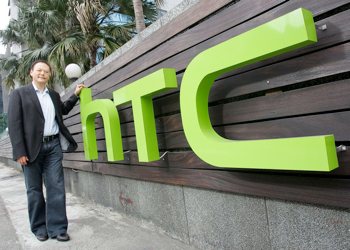The U.S. International Trade Commission finally issued its decision on a patent dispute between Apple and HTC. The determination states that several of the manufacturer's Android-based handsets will be banned from sale and import in the United States on April 12, 2012. HTC says not to worry though – they have a plan.
HTC dodged the bullet for 8 of the 10 patent accusations made in April, but those last two were still good enough to land an injunction from the ITC. The determination blocks several of HTC's Android-based devices from import and outright bans the sale of those devices in the U.S. It is currently unknown what exact phones are subject to the injunction.
So what's all the fuss about, this time? Apparently, Apple has patented clickable, actionable phone numbers and other types of data. For example, if someone texts their address to your iPhone, iOS detects that your friend sent you an address and makes it a clickable link. If you open the link, it will bring up the native map app and show you where that address is located. Android (and other software) happens to do the same thing. The blob of legalese for this is below:
Claim 1: A computer-based system for detecting structures in data and performing actions on detected structures, comprising: an input device for receiving data; an output device for presenting the data; a memory storing information including program routines including an analyzer server for detecting structures in the data, and for linking actions to the detected structures; a user interface enabling the selection of a detected structure and a linked action; and an action processor for performing the selected action linked to the selected structure; and a processing unit coupled to the input device, the output device, and the memory for controlling the execution of the program routines.
Claim 8: The system recited in claim 1, wherein the user interface highlights detected structures.
HTC's stocks plummeted as word about the ruling surfaced, however, the company has apparently been preparing for such an event. The handset maker had its designers hard at work altering the features under dispute, effectively working around Apple's patent claims. There is no word on when the changes will make it consumers, but it is safe to assume it will be before April 12, 2012.
When a statement that HTC had been working around the problem was given to the Boy Genuis Report, HTC stocks soared once again.
"We are gratified that the commission affirmed the judge's determination on the '721 and '983 patents, and reversed its decision on the '263 patent and partially on the '647 patent," ... "We are very pleased with the determination and we respect it. However, the '647 patent is a small UI experience and HTC will completely remove it from all of our phones soon."
Gizmodo reports the that Android 1.6 to 2.2 phones are affected. If this is true, the decision may ban the T-Mobile G2, MyTouch 3G, Hero, Desire, Aria, EVO, Droid Incredible and others. It would seem other manufacturers are at risk too, an example being Motorola's Droid. Let us not forget that many entry-level smartphones still sport older versions 1x and 2x versions.
In all honesty, the patent sounds broad enough to cover all versions of Android and even computer software like certain e-mail and calendaring clients. This could set a bad precedent for developers everywhere, including Google. The ITC's decision serves as an unnerving reminder of what a powerful weapon patents can be, even outside of the legal system.
